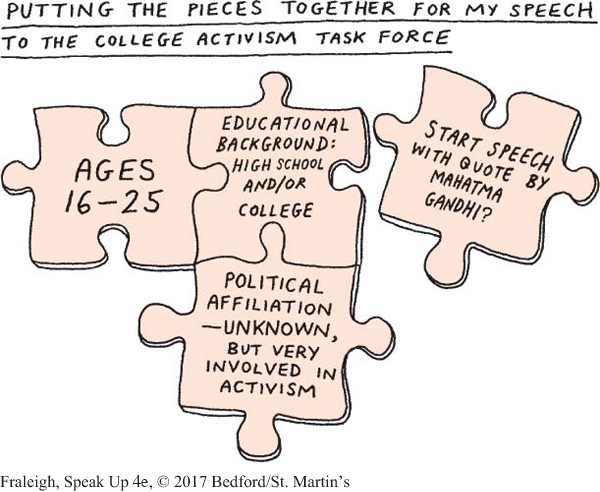Putting the Demographic Pieces Together
Great public speakers use their knowledge of their listeners’ demographic characteristics to understand the people they are addressing—and to make their messages more effective. Every audience is unique; by identifying characteristics that many of your listeners share, you gain insights into how they might respond to your message. You can then incorporate these insights as you develop your speech and frame your message for the audience.
For example, Jackie, a middle-aged doctor, was asked to give two speeches on safe-sex practices—one to a group of teens in a runaway shelter and another to a group of middle-income parents at a school. Jackie knew she would need to craft her message differently for each audience. Because she knew the teens would be suspicious of authority figures, she avoided calling attention to the age difference between herself and her listeners. In contrast, when Jackie gave her speech to the group of parents, she made reference to her age and her own role as a mother.
Page 140
Using demographics is also important in more complex situations—such as when you’re trying to make a persuasive case to audiences with opposing views. For example, a city council member named Ignacio was campaigning for his proposal to continue funding a pension program for retired city workers while also scaling back benefits for newly hired, younger city employees. When speaking to an older audience of retired workers, Ignacio acknowledged that the city had to honor its thirty-year-old promise to provide for their pensions—especially because he knew that many of these individuals grew up in a time when employers took care of their employees for life. In exchange for honoring the city’s commitment, he asked them to consider increasing their contributions to their health care. When Ignacio spoke to younger workers, he established common ground by acknowledging that he, too, felt the burden of paying for older retirees’ pensions—but that in keeping this promise to older workers, they could trust him to keep his word regarding future policies.
Page 141
